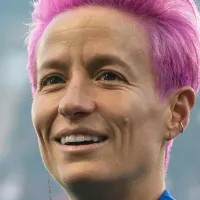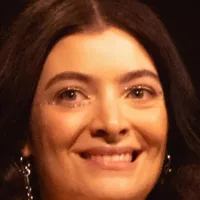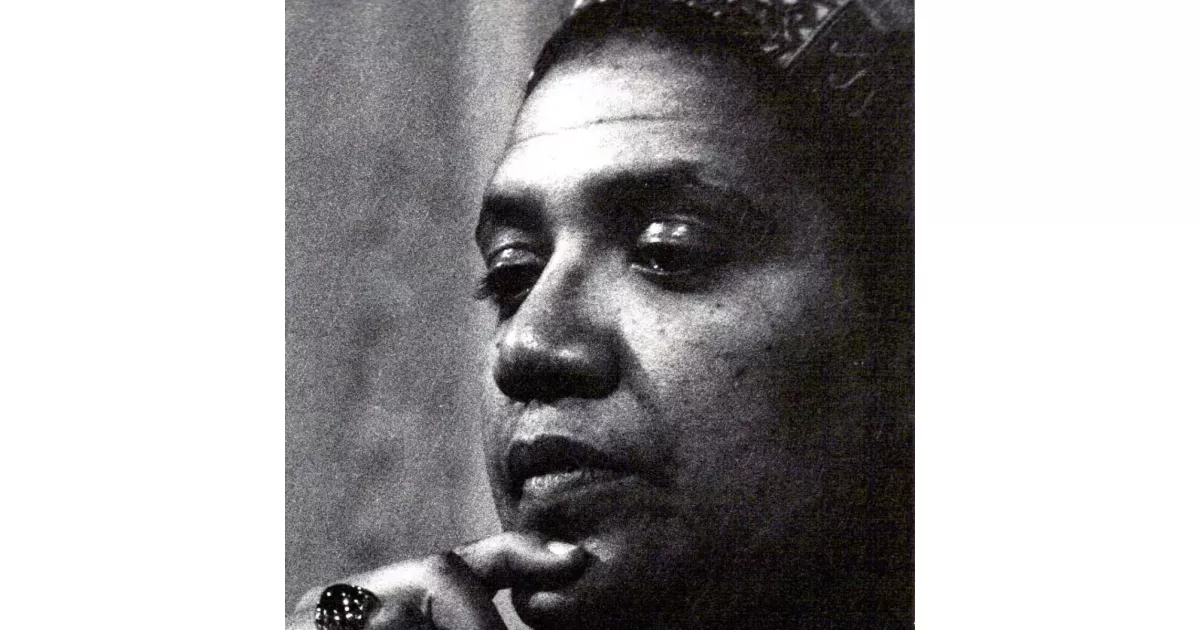Audre Lorde was a pivotal American figure as a writer, professor, and activist. Identifying as a "Black, lesbian, feminist, socialist, mother, warrior, poet," she dedicated her life to challenging injustices. Her work explored intersections of race, gender, and sexuality, advocating against any hierarchy of oppressions. Lorde's powerful voice and insightful poetry continue to inspire movements for social change and equality, emphasizing the importance of unity in the pursuit of liberation and a better future.
1902: Linda Gertrude Belmar Lorde's Birth
In 1902, Linda Gertrude Belmar Lorde, Audre Lorde's mother, was born on the island of Carriacou in Grenada.
February 18, 1934: Audre Lorde's Birth
On February 18, 1934, Audrey Geraldine Lorde, later known as Audre Lorde, was born in New York City.
1951: Graduation from Hunter College High School
In 1951, Audre Lorde graduated from Hunter College High School.
1953: Death of Audre Lorde's Father
Around New Year's 1953, Audre Lorde's father passed away from a stroke.
1961: Master's Degree from Columbia University
In 1961, Audre Lorde earned a master's degree in library science from Columbia University.
1962: Marriage to Edwin Rollins
In 1962, Audre Lorde married attorney Edwin Rollins, a white, gay man. They maintained an open relationship due to LGBTQ+ discrimination.
1962: Publication in New Negro Poets, USA
In 1962, Audre Lorde's poetry was published in Langston Hughes' New Negro Poets, USA.
1966: Head Librarian at Town School Library
In 1966, Lorde became the head librarian at Town School Library in New York City, a position she held until 1968.
1968: Departure from Town School Library
In 1968, Audre Lorde left her position as head librarian at Town School Library in New York City after holding the position since 1966.
1968: Publication of The First Cities
In 1968, Audre Lorde published her first volume of poems, The First Cities, edited by Diane di Prima.
1968: Writer-in-residence at Tougaloo College
In 1968, Audre Lorde served as writer-in-residence at Tougaloo College in Mississippi, which profoundly influenced her artistic development and led to the creation of her book of poems, Cables to Rage.
1968: Meeting Frances Clayton
In 1968, while in Mississippi, Lorde met Frances Clayton, a white lesbian and professor of psychology, who became her romantic partner until 1989.
1969: Teaching at Lehman College
In 1969, Audre Lorde began teaching in the Education Department at Lehman College.
1970: Divorce from Edwin Rollins
In 1970, Audre Lorde and Edwin Rollins divorced after having two children, Elizabeth and Jonathan.
1970: Publication of Cables to Rage
In 1970, Audre Lorde published her second volume, Cables to Rage, addressing themes of love, betrayal, childbirth, and the complexities of raising children, and openly confirmed her homosexuality.
1972: Residence on Staten Island
In 1972, Audre Lorde began residing on Staten Island where she continued writing and teaching, and also co-founded Kitchen Table: Women of Color Press.
1974: Release of New York Head Shop and Museum
In 1974, New York Head Shop and Museum was released, portraying Lorde's New York through the lenses of the civil rights movement and her own restricted childhood.
1976: Release of Coal
In 1976, Audre Lorde released Coal, establishing herself as an influential voice in the Black Arts Movement and introducing her work to a wider audience through Norton.
1977: Associate of the Women's Institute for Freedom of the Press
In 1977, Audre Lorde became an associate of the Women's Institute for Freedom of the Press (WIFP).
1978: The Black Unicorn Publication
In 1978, Lorde published "The Black Unicorn", where she explores her identity within African female deities, challenging Black Arts ideas about pan-Africanism by transferring the warrior ethos to a female vanguard.
1978: Breast Cancer Diagnosis
In 1978, Lorde was first diagnosed with breast cancer and underwent a mastectomy.
1978: Essay "The Erotic as Power" Written
In 1978, Lorde wrote her essay "The Erotic as Power", theorizing the Erotic as a site of power for women when they learn to embrace it, distinct from its sexualized meaning in mainstream society, dismissing the suppression of the erotic as a male-driven model of power.
October 13, 1979: Keynote Speech at National Third-World Gay and Lesbian Conference
On October 13, 1979, Audre Lorde delivered a keynote speech titled "When will the ignorance end?" at the National Third-World Gay and Lesbian Conference, reminding attendees to embrace diversity as a generative force and avoid being torn apart by it.
October 14, 1979: March on Washington
On October 14, 1979, audio recordings related to the March on Washington, which addressed civil rights for the gay and lesbian community, as well as poetry readings and speeches were recorded. These recordings are held at the Lesbian Herstory Archives in New York.
1979: Essay "Sexism: An American Disease in Blackface" Published
In 1979, Lorde published her essay "Sexism: An American Disease in Blackface", a rallying cry to confront sexism in the black community in order to eradicate the violence within it. She urged black women and men to end their fight to end racist politics.
1980: Publication of The Cancer Journals
In 1980, Audre Lorde published "The Cancer Journals", a non-fiction prose work exploring her diagnosis, treatment, and recovery from breast cancer. The book delves into Western notions of illness, disability, sexuality, and themes of death and survival.
1980: Co-founding Kitchen Table: Women of Color Press
In 1980, Audre Lorde, along with Barbara Smith and Cherríe Moraga, co-founded Kitchen Table: Women of Color Press, the first U.S. publisher for women of color.
1980: Meeting at the World Women's Conference
In 1980, Dagmar Schultz met Audre Lorde at the UN "World Women's Conference" in Copenhagen.
1981: Relationship with Gloria Joseph Begins
In 1981, Audre Lorde and Dr. Gloria Joseph began their relationship. They later resided together on Joseph's native land of St. Croix.
1981: Teaching at Hunter College
In 1981, Audre Lorde began teaching at her alma mater, Hunter College, as the distinguished Thomas Hunter chair, influencing her work and inspiring her to write essays and articles about queer, feminist, and African American studies.
1981: Co-founding the Women's Coalition of St. Croix
In 1981, Audre Lorde was among the founders of the Women's Coalition of St. Croix, an organization dedicated to assisting women who have survived sexual abuse and intimate partner violence.
1981: Keynote Speech at the National Women's Studies Association
In 1981, Lorde actively strove for the change of culture within the feminist community by implementing womanist ideology. Her speech contributed to communication with scholars' understanding of human biases and aimed to shift subjectivities of the "white feminist" audience.
1981: Founding of Kitchen Table: Women of Color Press
In 1981, Lorde and Barbara Smith founded Kitchen Table: Women of Color Press, dedicated to supporting black feminist writers through resources, guidance, and encouragement, promoting the celebration of differences.
1982: Publication of Zami: A New Spelling of My Name
In 1982, Lorde published "Zami: A New Spelling of My Name", a "biomythography" chronicling her childhood and adulthood and dealing with the evolution of her sexuality and self-awareness.
August 27, 1983: Address at March on Washington for Jobs and Freedom
On August 27, 1983, Audre Lorde addressed the March on Washington for Jobs and Freedom as part of the "Litany of Commitment," emphasizing the importance of solidarity among diverse groups and celebrating differences for collective strength.
1984: Teaching at Free University of Berlin
Beginning in 1984, Audre Lorde taught and visited Freie University of Berlin. Correspondence and teaching materials related to this period are held at the John F. Kennedy Institute of North American Studies at the university.
1984: Beginnings of "The Berlin Years"
From 1984 Audre Lorde began a period in Berlin that would later be covered in the documentary "Audre Lorde: The Berlin Years 1984–1992".
1984: Visiting Professorship in West Berlin
In 1984, Audre Lorde began a visiting professorship in West Berlin at the Free University of Berlin, becoming an influential figure in the Afro-German movement and coining the term "Afro-German".
1984: Lorde's Time in Berlin Begins
In 1984, Audre Lorde began her time in Berlin, where she led Afro-Germans in a movement to establish identities outside of stereotypes and discrimination. She introduced a new sense of empowerment for minorities, inspiring them to take charge of their identities.
1984: Publication of Sister Outsider: Essays and Speeches
In 1984, Lorde published "Sister Outsider: Essays and Speeches", asserting the necessity of communicating the experience of marginalized groups. She emphasizes the need for different groups to find common ground, face difference directly, and constructively channel anger incited by oppression.
1984: Publication of "The Master's Tools Will Never Dismantle the Master's House"
In 1984, Lorde's essay "The Master's Tools Will Never Dismantle the Master's House" attacked underlying racism within feminism, arguing that white feminists furthered old systems of oppression by denying difference in the category of women.
1986: Interview with Dr. Marion Kraft
In 1986, Audre Lorde was interviewed by Dr. Marion Kraft, where she discussed her literary works and articulated hope for the next wave of feminist scholarship and discourse.
1986: Move to St. Croix with Gloria Joseph
In 1986, after her liver cancer diagnosis, Audre Lorde officially left Clayton for Gloria Joseph, moving to St. Croix. Together they founded organizations such as the Che Lumumba School for Truth and the Women's Coalition of St. Croix.
1987: End of Staten Island Residence
In 1987, Audre Lorde ended her residence on Staten Island after living there since 1972.
1988: Publication of A Burst of Light
In 1988, Audre Lorde released "A Burst of Light", a non-fiction prose work reflecting on her breast cancer recurrence with liver metastases. The book delves into themes of death, fear of mortality, survival, emotional healing, and inner power.
December 1989: Writing "East Berlin 1989"
In December 1989, Audre Lorde wrote her poem "East Berlin 1989", expressing her views on the fall of the Berlin Wall and her concerns about the rise of racism and the triumph of capitalist democratic freedoms.
1989: End of relationship with Frances Clayton
In 1989, Audre Lorde ended her relationship with Frances Clayton, a white lesbian and professor of psychology, after having been together since 1968.
1991: New York State Poet Laureate
In 1991, Audre Lorde was designated as the New York State Poet Laureate. Governor Mario Cuomo praised her powerful voice against racial injustice and prejudice.
November 17, 1992: Audre Lorde's Death
On November 17, 1992, Audre Lorde, the American writer, professor, philosopher, intersectional feminist, poet, and civil rights activist, passed away.
1992: Endings of "The Berlin Years"
Audre Lorde's time in Berlin, later covered in the documentary "Audre Lorde: The Berlin Years 1984–1992" ended in 1992.
1992: End of Teaching at Free University of Berlin
In 1992, Audre Lorde ended her teaching and visits to Freie University of Berlin. Correspondence and teaching materials related to this period are held at the John F. Kennedy Institute of North American Studies at the university.
1992: Bill Whitehead Award for Lifetime Achievement
In 1992, Audre Lorde received the Bill Whitehead Award for Lifetime Achievement from Publishing Triangle.
1992: Lorde's Time in Berlin Ends
In 1992, Audre Lorde's time in Berlin ended, after she led Afro-Germans in a movement to establish identities outside of stereotypes and discrimination, introducing a new sense of empowerment for minorities.
1994: Founding of the Audre Lorde Project
In 1994, the Audre Lorde Project, a Brooklyn-based organization for LGBT people of color, was founded. It focuses on community organizing and activism related to LGBT communities, AIDS and HIV activism, pro-immigrant activism, prison reform, and youth organizing in New York City.
1995: Release of Body of a Poet
In 1995, "Body of a Poet" was written as a tribute biopic to honor Lorde, centering on a group of young lesbians of color and celebrating her life and work.
2001: Audre Lorde Award Instituted
In 2001, Publishing Triangle established the Audre Lorde Award to honor works of lesbian poetry.
2001: Inaugural Audre Lorde Award
In 2001, the Audre Lorde Award was first presented by Publishing Triangle to honor works of lesbian poetry.
2012: Release of "Audre Lorde: The Berlin Years 1984–1992"
In 2012, the documentary "Audre Lorde: The Berlin Years 1984–1992" by Dagmar Schultz was released, premiering at the Berlin Film Festival and highlighting Lorde's impact on the Afro-German movement.
2014: Award for "Audre Lorde: The Berlin Years 1984–1992"
In 2014, "Audre Lorde: The Berlin Years 1984–1992" won Winner of the Best Documentary Audience Award at the 15th Reelout Queer Film + Video Festival.
2018: Further Viewings of "Audre Lorde: The Berlin Years 1984–1992"
Until 2018, the documentary "Audre Lorde: The Berlin Years 1984–1992" continued to be viewed at festivals .
March 2019: Megan Rapinoe Honors Lorde
In March 2019, during their first match, Megan Rapinoe of the United States women's national soccer team wore a jersey with Lorde's name on the back to honor her.
June 2019: Induction on the National LGBTQ Wall of Honor
In June 2019, Audre Lorde was inducted on the National LGBTQ Wall of Honor within the Stonewall National Monument (SNM) in New York City, as one of the inaugural fifty American "pioneers, trailblazers, and heroes".
June 2019: Landmark Designation of Staten Island Residence
In June 2019, Audre Lorde's residence in Staten Island received landmark designation by the New York City Landmarks Preservation Commission.
January 2021: Named "Broad You Should Know"
In January 2021, Audre Lorde was named an official "Broad You Should Know" on the podcast Broads You Should Know.
April 29, 2022: Crater on Mercury Named Lorde
On April 29, 2022, the International Astronomical Union approved the name Lorde for a crater on Mercury.
May 10, 2022: "Audre Lorde Way" Renaming
On May 10, 2022, 68th Street and Lexington Avenue by Hunter College was renamed "Audre Lorde Way."
September 2023: Renaming of Manteuffelstrasse to Audre-Lorde-Straße
In September 2023, the northern part of the Manteuffelstrasse located in Berlin Kreuzberg was renamed to Audre-Lorde-Straße.
2024: Publication of "Survival Is a Promise"
In 2024, the biography titled "Survival Is a Promise" by Alexis Pauline Gumbs about Audre Lorde will be released.
Mentioned in this timeline

John F Kennedy JFK was the th U S President...

Google LLC is a multinational technology company specializing in online...

Megan Rapinoe is a celebrated American former professional soccer player...

Ella Marija Lani Yelich-O'Connor professionally known as Lorde is a...
Germany officially the Federal Republic of Germany is a nation...

Chicago is the most populous city in Illinois and the...
Trending

20 minutes ago Cameron Boozer: Duke Forward, Elite Numbers, and Wooden Award Favorite

20 minutes ago Josiah Harrell's Sensational UFC Debut After Rare Brain Disease Diagnosis: A Houston Story

21 minutes ago Rajah Caruth shines at JR Motorsports; Mayer takes pole; Mears avoids crash.

21 minutes ago Anthony Black scores 20 points in Magic's Thursday's victory, Desmond Bane contributes.

21 minutes ago Yaxel Lendeborg's life story, Michigan rise, and draft prospects are revealed.
1 hour ago Alabama Basketball Faces LSU: A Crucial Road Matchup and Maturity Test Looms
Popular

Jesse Jackson is an American civil rights activist politician and...

Barack Obama the th U S President - was the...

Ken Paxton is an American politician and lawyer serving as...

Bernie Sanders is a prominent American politician currently serving as...
Randall Adam Fine is an American politician a Republican who...

Michael Joseph Jackson the King of Pop was a highly...









